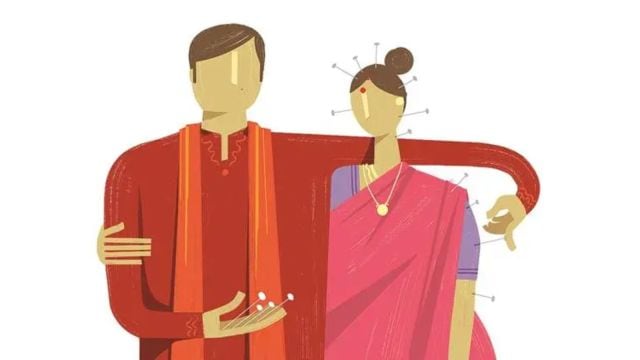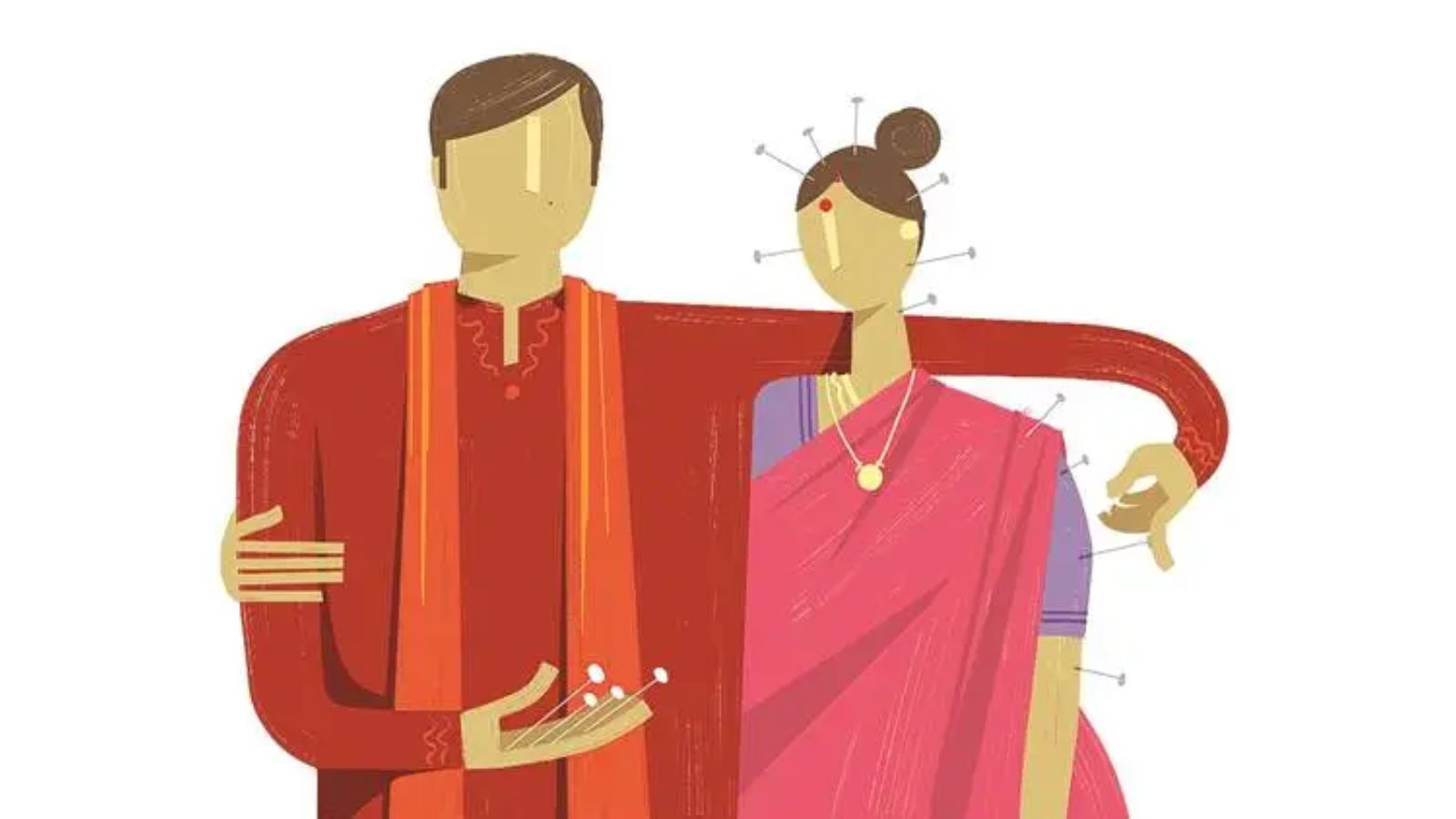
It wasn’t too long ago that I was teaching Hindi sentence-making to my eight-year-old son. We stumbled upon a sentence which didn’t astonish me but prompted him to pause. The sentence was: Ram khelne ja, Sita roti la (Ram go to play, Sita get a roti). Each half of the sentence was accompanied by an illustration. The first showed a little boy (around my son’s age) happily running towards an open playground, his hands in the air, while the second picture had a little girl walking gingerly with a plate in her hand towards a dining table full of happy adults. Ironically, the girl too looked happy.
My son immediately asked why Sita wasn’t going to the playground as well. The enormity of this otherwise innocent-looking picture had hit us both. The more relevant question, I said to him, was why can’t Ram get the rotis? He looked baffled at the prospective role reversal.
Besides learning how to construct sentences in Hindi, he got his first lesson in the pervasive patriarchy of Indian society that day.
The evolution of civilisational patriarchy, which leads to eve teasing, workplace abuse and, in extreme instances, rape, begins at home. The Ram who didn’t serve a roti or a Sita who didn’t go to the playground are not the problem. Their depictions in a second-grade school book are. We always thought that education was a sure-shot means to level the playing field on issues like gender, social justice, secularism and poverty. Not in India.
Now, at 15 years of age, my son still remembers that day when Ram didn’t serve rotis. His idea of a society was fortunately not framed by that picture or its meaning but by the inputs of the world around him. In India, and for that matter in a large part of the world, patriarchy finds us everywhere. It holds us ransom in the name of tradition, culture and morality. With every rape, the woman’s character, dress sense and audacity to take on the world is questioned. The anatomy of a sexual abuse is always dissected through the body and mind of the victim. The perpetrator is seen as a lone wolf. The society at large goes scot-free till the next rape happens. My son can now see this game a little more clearly.
In my childhood, I hardly remember my father and other male members of the family speak of patriarchy in a manner in which I feel it is urgent to discuss the issue with my son. They all were quite liberal people who believed in the emancipation of women. Most among the family were comfortable with their daughters and sisters joining feminist movements and political parties; there was no bar on interfaith marriages. But patriarchy still prevailed in the family. Inheritance offered unequal shares to women. Some secrets of business were only for men to listen to. Women were kept out. Girls were prompted to dress “properly” because “the times were such” and I always felt that we boys were treated with a little more kindness than our female counterparts. This burden of privilege always weighed upon me and I made sure that its transmission to my son was cut off. Serving rotis at the table is a good starting point. But he also has to do more.
The indexing of patriarchy is the problem of the modern world which my son will have to face more than me. His modernity is different from mine. His patriarchy is also different from mine. He lives in a world which is well aware of patriarchal practices but cunningly wants to wrap itself in a way that everything continues as is but on a simmer. Status quo on a slow burner. We now celebrate Mother’s Day. I told him the other day what Deborah Levy had written in her biography, Things I Don’t Want to Know (2013), “We did not yet entirely understand that Mother, as imagined and politicised by the Societal System, was a delusion. The world loved the delusion more than it loved the mother.”
He has promised to read more of Levy and, for me, that’s a victory.
As we grapple with the Kolkata rape, or the startling conclusions of the Hema Committee report, we arrive at the doorstep of a society unwilling to mend itself. Every rape is a means to introspect but as soon as we realise that we are actually the problem, the chaos sets in. We guard our patriarchy by not allowing Ram to fetch rotis. It’s actually not about Sita. She’s fine.
I told Shayan, my son, that the first written word in human history was amagi (or, amargia). It was the first written reference to “freedom” and was thought to mean “return to the mother”. It was used to refer to the freedom granted to slaves. That’s what we need to do as a society in this country: We need to return to the mother. We need this freedom urgently.
The writer is professor, Department of Orthopaedics, All India Institute of Medical Sciences, New Delhi. Views are personal
© The Indian Express Pvt Ltd
First uploaded on: 09-09-2024 at 11:24 IST



